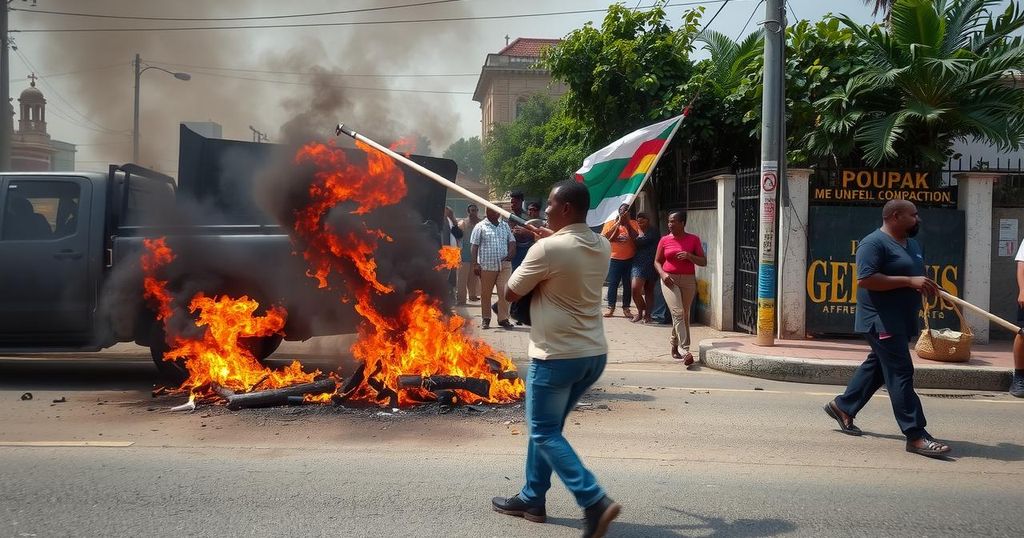Mozambique’s Post-Election Violence Escalates, Disrupting Stability and Safety

Mozambique is experiencing severe unrest following the re-election of the ruling Frelimo party amidst allegations of electoral fraud, resulting in over 278 deaths since October. The violence has led to significant economic disruption, with shortages of goods and rising prices affecting daily life. The situation has prompted mass protests and resulted in widespread property destruction and public safety issues.
Mozambique is engulfed in turmoil following the announcement of the ruling party Frelimo’s continued dominance in the recent elections, marking 50 years of power. The aftermath has seen a surge in post-election violence, resulting in the deaths of at least 278 individuals since October, with 176 fatalities over a single week. The capital, Maputo, has transformed into a battleground as opposition supporters protest against alleged electoral fraud, escalating into urban riots met by police crackdowns.
The unrest exacerbated on Christmas Day, when over 1,500 prisoners escaped from Maputo’s central prison, leading to chaos and violence. Approximately 150 escapees have been recaptured, while several individuals were reported killed during confrontations with prison staff. The violence has also impacted public safety, with ambulances torched and attacks on medical facilities. Many businesses have closed, causing shortages of essential goods and rising prices in the market.
President Daniel Chapo has appealed for calm and unity amidst the growing disorder. In contrast, opposition leader Venancio Mondlane has accused government forces of instigating violence to suppress dissent. The situation has severely undermined Mozambique’s economy, triggering inflation and supply chain disruptions, as foreign companies become targets of protest. The unrest’s economic toll has been estimated at nearly $430 million, with many Mozambicans fleeing to neighboring countries seeking safety.
The unfolding situation in Mozambique is rooted in the controversial results of the October elections, where the ruling party Frelimo was alleged to have engaged in fraudulent practices to maintain its grip on power. The opposition’s vehement claims of a ‘stolen’ election have sparked widespread protests that quickly escalated into violent confrontations, highlighting the country’s long-standing political tensions. The recent turmoil has led to serious humanitarian concerns, including significant loss of life, property, and public safety.
In summary, Mozambique is facing unprecedented levels of violence and unrest following the flawed electoral process that has reignited political discord. The response from public authorities has, thus far, only intensified tensions. As the country grapples with both immediate security threats and long-term economic repercussions, there are growing fears of a humanitarian crisis. The international community must closely monitor the situation to prevent further degradation of civil order and assist in establishing a path towards political stability.
Original Source: international.la-croix.com







